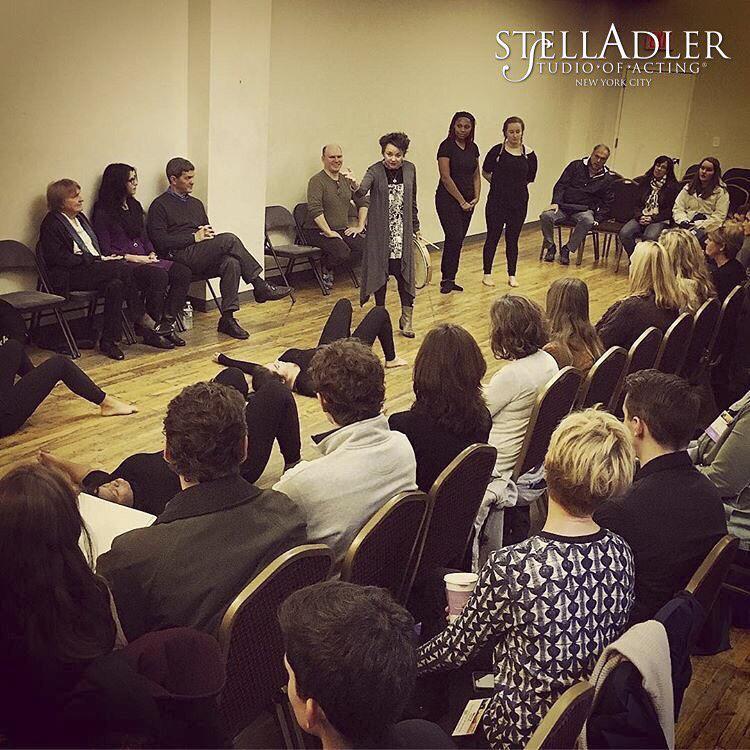Tisch Professor Teaches Female Inmates
Although her teaching is not limited to Tisch students, Joanne Edelmann primarily acts as a professor in the Stella Adler Studio.
November 14, 2016
The 70 aspiring actors in Tisch’s Stella Adler studio aren’t professor Joanne Edelmann’s only students.
Each week for the past two years, Edelmann has been traveling uptown to teach her movement techniques class at Rikers Island, the holding jail on the East River between Queens and the Bronx. For Edelmann, seeing how art changes the women she works with is the best part of teaching her class.
Over a hundred women have come and gone. Edelmann teaches twice a week, helping the women at Rikers develop a movement project much like her students’ at Stella Adler.
The culmination of the class is a performance on Wednesday, Nov. 16. Nine women will perform a movement project for an audience of students, teachers, officials and other incarcerated women based on a quote from novelist Eudora Welty, poets Sonia Sanchez and Yusef Komunyakaa as well as their own poetry.
Edelmann, who is a professor in the Stella Adler Studio of Acting, one of the undergraduate Tisch drama studios, was previously a modern dancer. Drawing from her own background as well as acting, voice and speech techniques, Edelmann created a class for students at Stella Adler. It focuses on helping actors find characters through movement and the vehicle of poetry.
“Many, many years ago Tom Oppenheim, who is the artistic director [of Stella Adler], said to me, ‘You should be reading poetry,’” Edelmann said. “And so I got hooked and started curating the Harold Clurman poetry reading series here. Then, I discovered I couldn’t teach my movement class without first starting with a poem.”
These movement technique classes create movement projects, which combine dance and poetry in a way that Edelmann explained as “getting your inner life to the outside.” With a backdrop of music and poetry as dialogue, students convey emotions and better understand their characters with movement, which ranges from dance to body language to simple gestures. Edelmann believes movement is essential to understanding a character.
“Stella Adler, who founded the studio, said that the body is the first communicator,” Edelmann said. “Words lie, but the body doesn’t.”
Edelmann, although truly dedicated to her work, describes parts of her experience working at the prison as a tragedy.
“These are women who have been steeped in poverty their whole lives. They’ve been abused. They have committed heinous crimes or have been accused of it. I see them only as who they are right here today,” Edelmann said. “Just going into the jail is very difficult, but once the class begins and it’s just the relationship between teacher and student, then it’s as if I were teaching here [at Stella Adler]. And then of course, I leave, and they remain, so that’s difficult.”
Still, she continues, because she believes in the power of art to change people and to brighten the outlook of an uncertain future.
“They’ll say things like, ‘When I get out I’m going to make sure to bring my son to museums.’ It changes the culture,” Edelmann said. “I’ve always believed that art changes people and changes the world, but then actually seeing these women and how the work has changed them confirms it.”
A version of this article appeared in the Monday, Nov. 14 print edition. Email Kaitlyn Wang at [email protected].
























































































































































